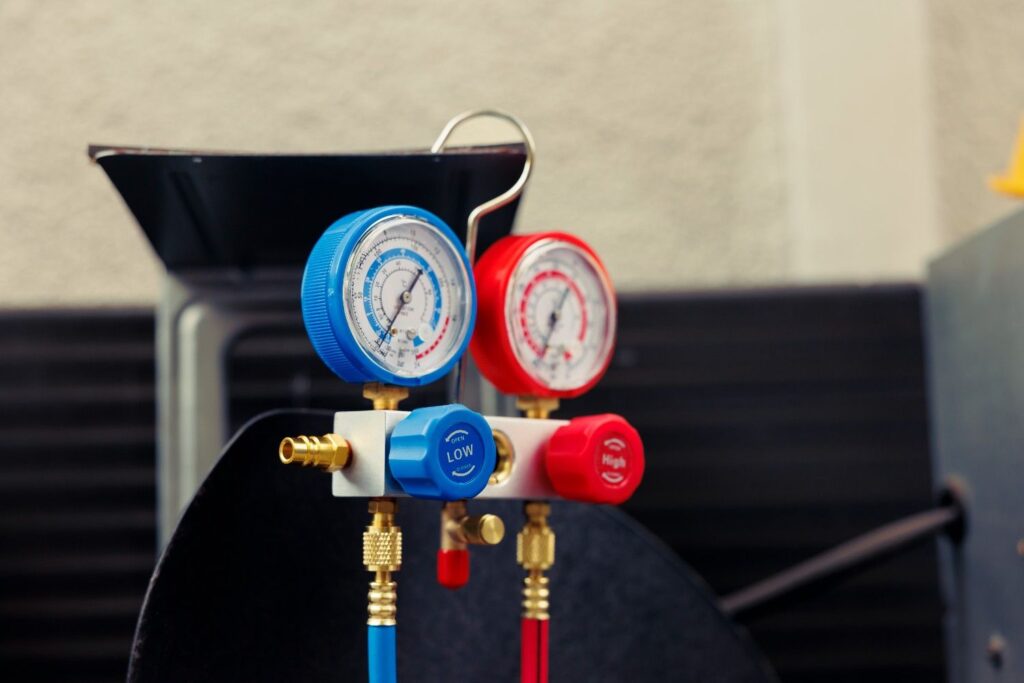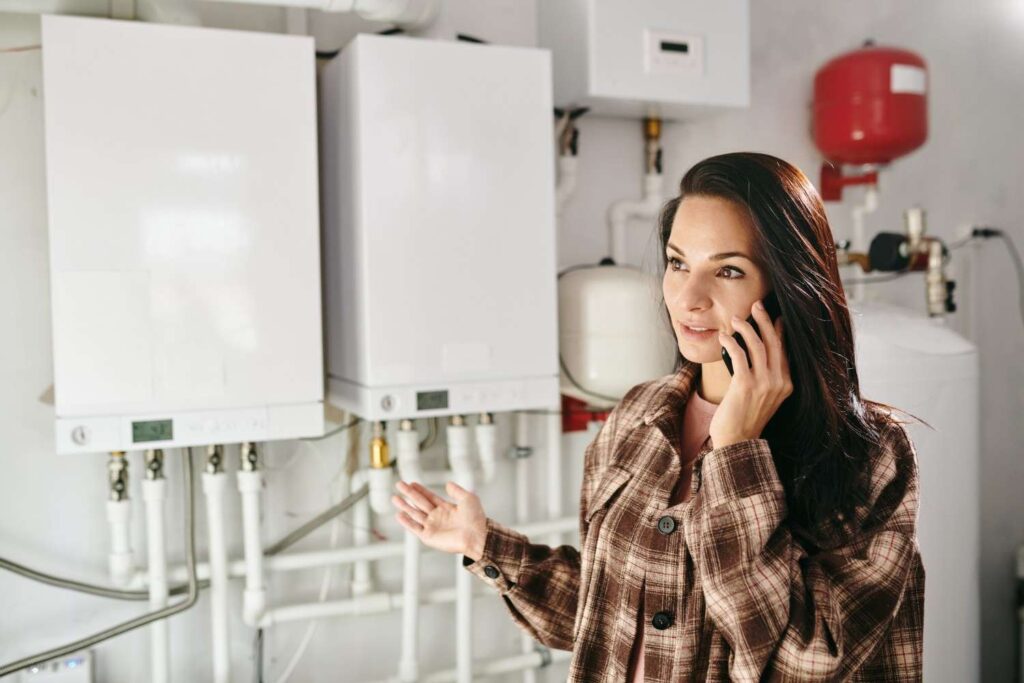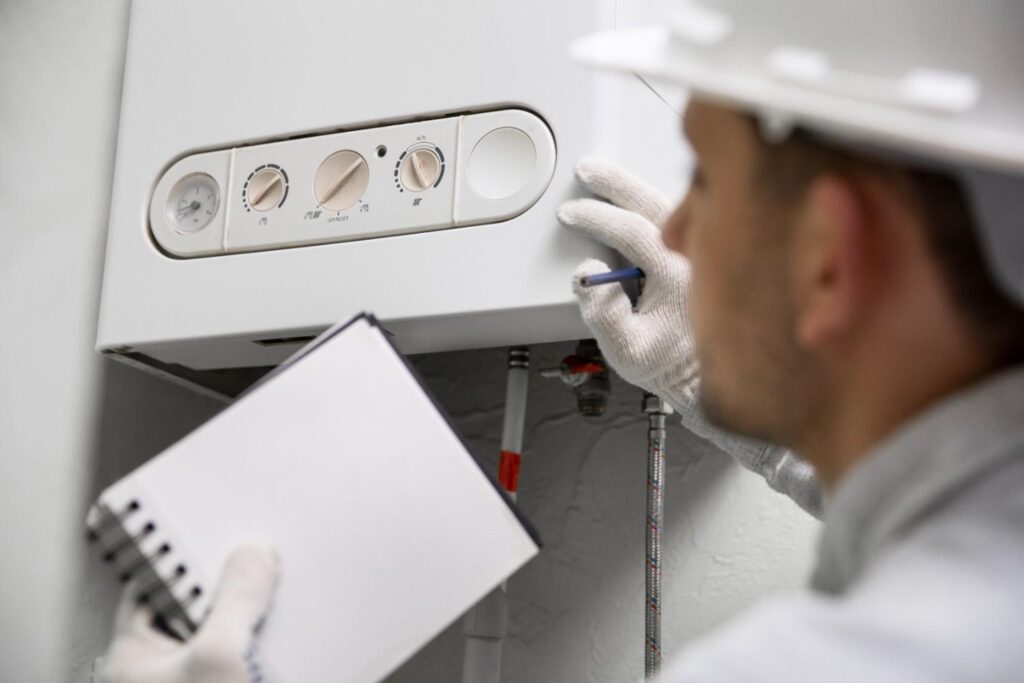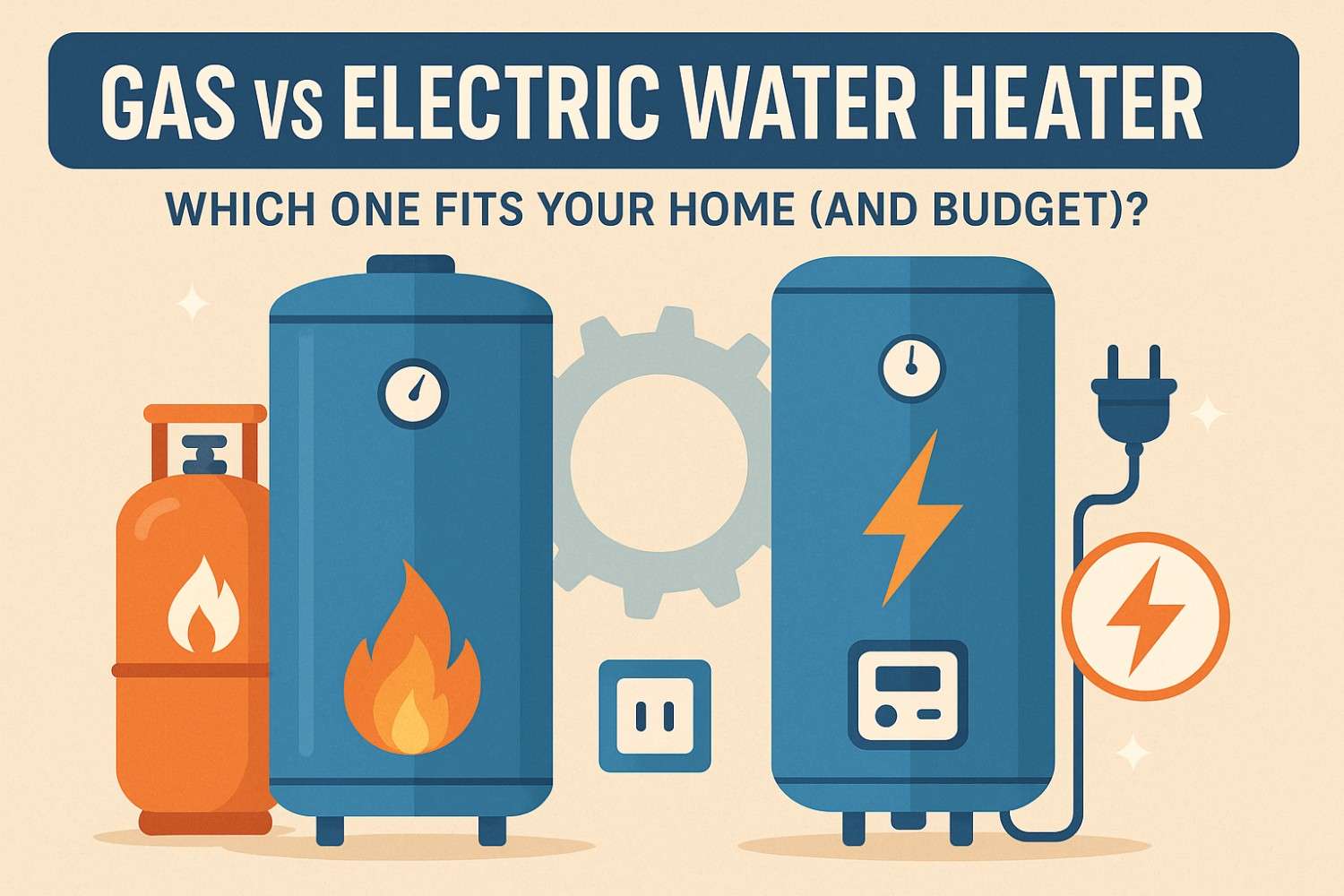If you’re torn between a gas vs electric water heater, you’re really choosing among upfront cost, operating cost, recovery speed, and installation constraints. Below I break down how each option performs, using current guidance from Energy.gov, Consumer Reports, and recent price trends so you can buy once and buy right.
What’s the Real Difference Between Gas and Electric?
Fuel & heat source. Gas heaters use a burner (natural gas or propane). Electric models use one or more electric elements. Gas typically heats water faster (higher recovery rates), while electric models are simpler to install when no gas line or venting exists. Gas can also keep running during power outages if it doesn’t rely on electric ignition.
Efficiency & ratings. Today’s water heaters use UEF (Uniform Energy Factor)—higher means better efficiency. You can only compare UEFs within the same usage bin (small/medium/large draw). Heat-pump electrics often have the highest UEFs on the market.
Gas vs Electric Water Heater: Cost, Efficiency, and Win Conditions
Upfront cost. Installation is usually cheaper for standard electric (no venting), while gas may require venting and gas line work—especially in conversions.
Monthly bills. Gas models often cost less to operate when gas prices are low, but heat-pump electric water heaters can drastically reduce energy use.
Speed & capacity. Gas tanks reheat water faster, which benefits larger households.
Lifespan & maintenance. Both types last 8–15 years with proper care. Electric has fewer moving parts; gas has burners and vents to maintain.
Environmental impact. Electric units—especially heat-pump models—produce fewer emissions when paired with renewable energy.

Gas vs Electric Water Heater Comparison Table
| Feature / Factor | Gas Water Heater | Electric Water Heater |
| Energy Source | Natural gas or propane | Electricity |
| Installation Cost | Higher (venting & gas line required) | Lower (no venting needed) |
| Operating Cost | Lower in most regions | Higher unless using a heat pump |
| Heating Speed (Recovery Rate) | Faster | Slower |
| Energy Efficiency (UEF) | Moderate (0.6–0.7 typical) | High (0.9+ for heat-pump models) |
| Maintenance Needs | More (burner & vent cleaning) | Less (check elements occasionally) |
| Safety Concerns | Requires ventilation, gas leak risk | Minimal, no combustion |
| Environmental Impact | Higher emissions | Lower emissions (especially with renewables) |
| Power Outage Performance | Works without electricity (some models) | Shuts off during outage |
| Best For | Homes with gas service, large households | Apartments, all-electric homes, eco-friendly buyers |
This structured comparison helps homeowners quickly identify which water heater suits their energy source, budget, and sustainability goals—supporting search intent queries like “Is gas or electric water heater better?” and “gas vs electric water heater pros and cons.”
When Does Gas Win?
Choose gas if you:
- Already have a gas line and proper venting.
- Need fast recovery for heavy household use.
- Live where gas is cheaper than electricity.

When Does Electric Win?
Go electric if you:
- Don’t have a gas line or venting system.
- Want a simpler, safer installation.
- Plan to reduce your carbon footprint with heat-pump technology.
What About Tankless Models?
Gas tankless heaters deliver high flow but need larger gas lines and venting.
Electric tankless units skip venting but require high amperage.
According to Energy.gov, tankless systems can be 24–34% more efficient in low-use households.
How to Pick the Right Size (Without Guesswork)
- Estimate your peak usage. How many hot water fixtures might run at once?
- Check the first-hour rating (for tanks) or flow rate (for tankless).
- Match the UEF within the correct usage bin for fair comparison.

Frequently Asked Questions
1. Is a gas water heater cheaper to run than electric?
Yes, typically, if your local gas rates are low. However, in regions with cheap electricity or when using a heat-pump electric, electric models can cost less overall.
2. Which lasts longer—gas or electric water heater?
Both last around 8–15 years with proper maintenance. Electric heaters often outlast gas ones slightly because they have fewer moving parts.
3. Do electric water heaters work during a power outage?
No. Gas models can operate without power (if they have a standing pilot light), but electric ones stop working until power is restored.
4. Are heat-pump electric water heaters noisy?
A little. They emit a low hum similar to a refrigerator, but newer models are much quieter and more efficient.
The Bottom Line on Gas vs Electric Water Heater
For a clear gas vs electric water heater decision:
- Choose gas for fast heating, lower operating costs (in most regions), and existing gas connections.
- Choose electric (or heat-pump electric) for energy efficiency, lower emissions, and easier installation.
Always compare local energy rates, installation complexity, and UEF ratings before deciding. The right choice balances comfort, cost, and sustainability for your home—and that’s the formula search engines (and homeowners) reward most.










